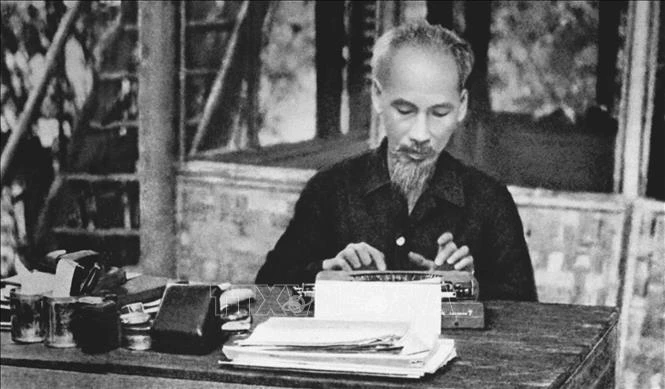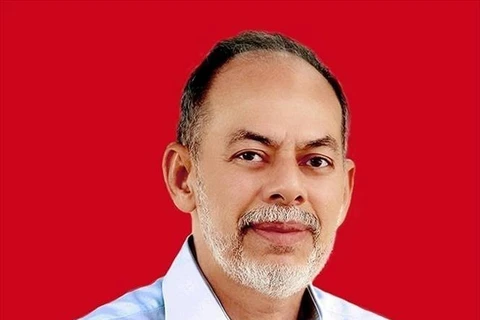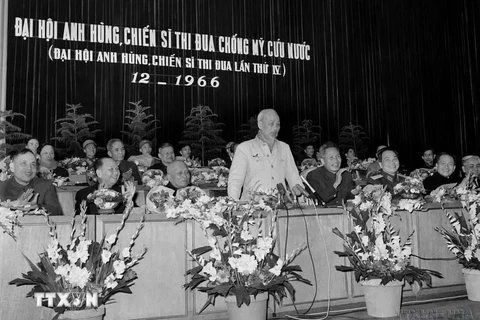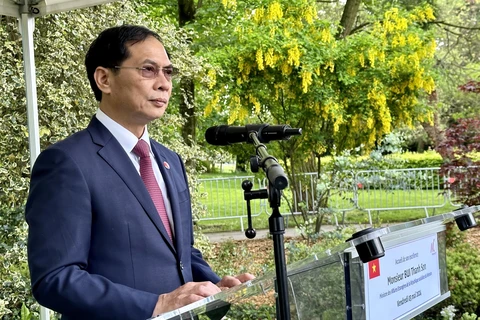
Vientiane (VNA) – As President Ho Chi Minh is a beloved and respectful figure that represents the homeland, many Vietnamese in Laos have set up altars to worship him, Nguyen Thi Lan Chi, deputy rector of the Nguyen Du Lao-Vietnamese bilingual language school said in an interview with the Vietnam News Agency on the occasion of the 134th birthday of the President (May 19, 1890-2024).
According to Chi, with their utmost respect for Uncle Ho, the expats joined hands in building a memorial site dedicated to him in Khammuane province, while various activities have been held at the school, helping students get a deeper insight into his lifestyle, career and morality, and encouraging them to follow his moral example.
She went on to highlight the significance of the Ho Chi Minh ideology, saying it bolstered the power of patriotism and led the struggle for national liberation in the past, and has been a source of encouragement in the country’s renewal cause.
As for Chi who has thoroughly grasped the thought, she has made efforts to study and contribute to protecting the socialist Fatherland, while inspiring patriotism among her students and making them feel proud of the nation’s history and culture.
Living in Laos for 14 years, she affirmed that the Party and State’s rational policies for overseas Vietnamese (OVs) have an important role to play in connecting them with those in the homeland.
Specifically, the amended Land Law, adopted by the National Assembly in January, has created favourable conditions for OVs to buy houses in the home country, she continued, saying the legal document has made expats feel more confident in the Party and State’s policies.
Such meaningful programmes for OVs as “Xuan Que huong” (Homeland Spring), the trip to Truong Sa (Spratly) and DK1 platform, and the Vietnamese summer camp, have been held annually, contributing to strengthening bonds among the Vietnamese community, she added./.






















